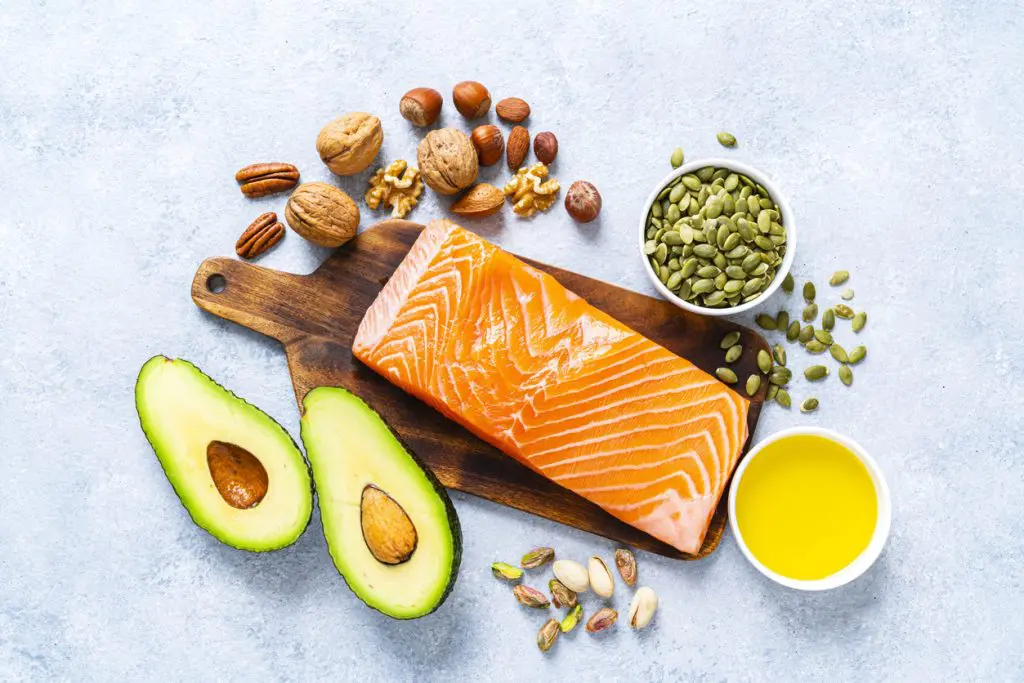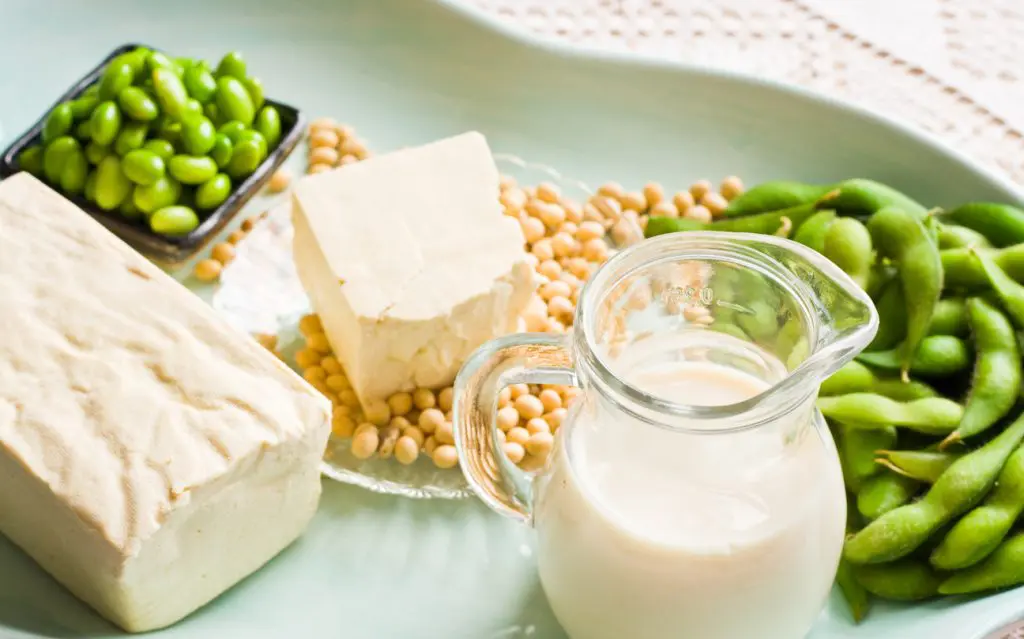Maintaining healthy cholesterol levels is crucial for a healthy heart. High cholesterol is a significant risk factor for heart disease, the leading cause of death in the United States. Unfortunately, many people struggle with high cholesterol due to poor dietary habits and lifestyle choices. However, making smart changes to your diet can significantly lower your cholesterol levels and improve your overall heart health. This guide aims to help you understand the importance of incorporating cholesterol-lowering foods into your daily routine and provides practical tips for doing so.
In this article, we’ll explore 11 powerful diet changes that can help you lower your cholesterol and keep your heart healthy. From adding more oats and fatty fish to your meals to enjoying the occasional piece of dark chocolate, each section will highlight the benefits of specific foods and offer simple ways to include them in your diet. By making these changes, you can take control of your cholesterol levels, reduce your risk of heart disease, and enjoy a healthier, more vibrant life. Whether you’re looking to make a complete dietary overhaul or just a few tweaks, this guide will provide you with the information and inspiration you need to get started.

Oats and Barley
Oats and barley are two of the most effective foods for lowering cholesterol, thanks to their high content of soluble fiber, specifically beta-glucan. Soluble fiber helps reduce LDL (bad) cholesterol by binding to cholesterol in the digestive system and removing it from the body. By incorporating oats and barley into your daily diet, you can significantly improve your cholesterol levels and support heart health. Oats are incredibly versatile, making them an easy addition to breakfast, snacks, and even savory dishes.
Here are some simple ways to include oats and barley in your diet:
- Breakfast: Start your day with a bowl of oatmeal topped with fresh fruits and nuts for added flavor and nutrients.
- Snacks: Enjoy oat-based snacks like granola bars or oat muffins for a heart-healthy treat.
- Lunch and Dinner: Use barley as a base for hearty soups, stews, or salads. You can also add it to casseroles or use it as a rice substitute.
- Baking: Substitute some of the flour in your baking recipes with oat flour to boost the fiber content of your breads, muffins, and cookies.
Recommended products:
- Rolled Oats: Perfect for quick-cooking oatmeal and baking.
- Steel-Cut Oats: A heartier option for those who prefer a chewier texture.
- Barley: Look for hulled or pearl barley, which are easy to cook and can be used in a variety of dishes.
By making these small changes to your diet, you can enjoy the delicious taste of oats and barley while reaping significant health benefits. Start experimenting with these foods today to take a positive step toward better heart health.
Nuts and Seeds
Nuts and seeds are nutritional powerhouses that can significantly improve your cholesterol levels. Rich in unsaturated fats, fiber, and plant sterols, these small but mighty foods help reduce LDL (bad) cholesterol and increase HDL (good) cholesterol. Regular consumption of nuts and seeds has been linked to a lower risk of heart disease. Incorporating a variety of nuts and seeds into your diet can provide a tasty and convenient way to boost your heart health.
Here are some easy ways to add nuts and seeds to your diet:
- Snacks: Keep a stash of mixed nuts and seeds for a quick, heart-healthy snack. Almonds, walnuts, and sunflower seeds are great options.
- Salads: Sprinkle chia seeds, flaxseeds, or pumpkin seeds on your salads for added crunch and nutrition.
- Breakfast: Add ground flaxseeds or chia seeds to your morning smoothie or yogurt for an extra boost of fiber.
- Baking: Include chopped nuts in your baked goods, such as muffins, bread, and cookies, for added texture and health benefits.
Recommended products:
- Almonds: A great source of vitamin E and healthy fats.
- Walnuts: Packed with omega-3 fatty acids and antioxidants.
- Chia Seeds: High in fiber and omega-3s, perfect for smoothies and puddings.
- Flaxseeds: Rich in lignans and fiber, great for baking and adding to cereals.
By making nuts and seeds a regular part of your diet, you can enjoy their delicious flavors while taking proactive steps toward lowering your cholesterol and protecting your heart. Try incorporating these suggestions into your meals and snacks to experience the benefits firsthand.
Fatty Fish

Fatty fish, such as salmon, mackerel, and sardines, are among the best sources of omega-3 fatty acids, which are essential for heart health. Omega-3 fatty acids help lower triglycerides, reduce inflammation, and improve overall cholesterol levels by increasing HDL (good) cholesterol. Including fatty fish in your diet not only supports heart health but also provides a rich source of high-quality protein and essential nutrients.
Here are some simple ways to incorporate fatty fish into your meals:
- Grilled or Baked: Enjoy grilled or baked salmon or mackerel as a main dish. Season with herbs, lemon, and olive oil for added flavor.
- Salads: Add chunks of canned tuna or salmon to your salads for a protein-packed meal.
- Sandwiches: Make a heart-healthy sandwich with canned sardines or mackerel on whole-grain bread with avocado and fresh vegetables.
- Soups and Stews: Include fatty fish in your soups or stews for a nutritious and warming meal.
Recommended products:
- Fresh Salmon: Look for wild-caught salmon for the best flavor and nutritional value.
- Canned Tuna: Choose tuna packed in water or olive oil for a convenient, heart-healthy option.
- Canned Sardines: Opt for sardines packed in olive oil or water for an easy addition to salads and sandwiches.
- Frozen Mackerel: A versatile option that can be grilled, baked, or added to various dishes.
By making fatty fish a regular part of your diet, you can enjoy delicious meals while reaping significant health benefits. Aim to include at least two servings of fatty fish per week to support heart health and lower cholesterol levels. Start experimenting with these ideas today to take a proactive step toward a healthier heart.
Legumes
Legumes, including beans, lentils, and peas, are a fantastic addition to a heart-healthy diet. Rich in soluble fiber, protein, and various essential nutrients, legumes help lower LDL (bad) cholesterol and improve overall heart health. Their high fiber content helps bind cholesterol in the digestive system, preventing it from being absorbed into the bloodstream. Incorporating legumes into your meals can also aid in weight management and provide a satisfying alternative to meat-based dishes.
Here are some simple ways to add legumes to your diet:
- Salads: Toss chickpeas or black beans into your salads for added texture and protein.
- Soups and Stews: Include lentils or split peas in your soups and stews for a hearty, cholesterol-lowering meal.
- Side Dishes: Serve a side of seasoned kidney beans or navy beans with your main course.
- Meat Substitutes: Use black beans or lentils as a base for veggie burgers or meatless meatballs.
Recommended products:
- Canned Beans: Choose low-sodium options like black beans, chickpeas, or kidney beans for convenience and quick meal prep.
- Dried Lentils: A versatile and quick-cooking option for soups, stews, and salads.
- Frozen Peas: An easy addition to a variety of dishes, from stir-fries to casseroles.
- Bean Mixes: Look for pre-mixed bags of dried beans for a diverse and nutrient-rich addition to soups and stews.
By incorporating more legumes into your diet, you can enjoy their numerous health benefits while keeping your meals delicious and satisfying. Aim to include legumes in several meals each week to help lower your cholesterol and support overall heart health. Start experimenting with these ideas today to make legumes a staple in your diet.
Fruits and Vegetables
Fruits and vegetables are essential components of a heart-healthy diet, offering a rich source of fiber, vitamins, minerals, and antioxidants. These nutrients help lower LDL (bad) cholesterol and support overall cardiovascular health. Soluble fiber, in particular, found in many fruits and vegetables, helps reduce cholesterol absorption in the bloodstream. By incorporating a variety of fruits and vegetables into your daily meals, you can significantly improve your cholesterol levels and promote better heart health.
Here are some easy ways to include more fruits and vegetables in your diet:
- Snacks: Keep fresh fruits like apples, pears, and berries handy for a quick, cholesterol-lowering snack.
- Salads: Load your salads with colorful vegetables such as spinach, kale, bell peppers, and carrots for a nutrient-packed meal.
- Smoothies: Blend fruits like bananas, berries, and spinach into smoothies for a convenient and delicious way to boost your fiber intake.
- Side Dishes: Serve steamed or roasted vegetables like broccoli, Brussels sprouts, and sweet potatoes with your main courses.
Recommended products:
- Fresh Produce: Opt for seasonal fruits and vegetables for the best flavor and nutritional value.
- Frozen Fruits and Vegetables: A convenient and affordable option that retains most of the nutrients found in fresh produce.
- Canned Vegetables: Choose low-sodium options for soups, stews, and casseroles.
- Dried Fruits: A great on-the-go snack, but be mindful of added sugars.
By making fruits and vegetables a regular part of your diet, you can enjoy their delicious flavors while reaping the heart-healthy benefits. Aim to fill half your plate with fruits and vegetables at every meal to help lower your cholesterol and improve overall health. Start experimenting with these ideas today to make fruits and vegetables a staple in your daily routine.
Avocados
Avocados are a delicious and versatile addition to a heart-healthy diet. Packed with monounsaturated fats, fiber, and a variety of essential nutrients, avocados help lower LDL (bad) cholesterol while increasing HDL (good) cholesterol. These heart-healthy fats are known to improve overall cholesterol levels and support cardiovascular health. Incorporating avocados into your meals can provide a satisfying and creamy texture, making them an excellent substitute for less healthy fats like butter and mayonnaise.
Here are some simple ways to add avocados to your diet:
- Toast: Spread mashed avocado on whole-grain toast and top with a sprinkle of salt, pepper, and a drizzle of olive oil for a quick and nutritious breakfast.
- Salads: Add sliced or cubed avocado to salads for a creamy texture and a boost of healthy fats.
- Smoothies: Blend avocado into your morning smoothie for a rich, creamy texture and an extra dose of nutrients.
- Sandwiches and Wraps: Use avocado slices as a spread or filling for sandwiches and wraps instead of high-fat condiments.
- Guacamole: Prepare a classic guacamole dip with mashed avocado, lime juice, cilantro, and chopped tomatoes for a heart-healthy snack.
Recommended products:
- Fresh Avocados: Look for ripe avocados that give slightly to gentle pressure for the best flavor and texture.
- Pre-made Guacamole: A convenient option for those short on time, but check for added preservatives and sodium.
- Frozen Avocado Chunks: Perfect for smoothies and easy to store.
By making avocados a regular part of your diet, you can enjoy their creamy, delicious taste while taking proactive steps to lower your cholesterol and improve heart health. Start experimenting with these ideas today to make avocados a staple in your meals and snacks.
Olive Oil
Olive oil is a cornerstone of the Mediterranean diet, renowned for its numerous heart-health benefits. Rich in monounsaturated fats and antioxidants, olive oil helps lower LDL (bad) cholesterol and increase HDL (good) cholesterol. These healthy fats and beneficial compounds can reduce inflammation and improve overall cardiovascular health. By substituting olive oil for saturated fats like butter and margarine, you can make a simple yet impactful change to support your heart health.
Here are some practical ways to incorporate olive oil into your diet:
- Cooking: Use extra virgin olive oil for sautéing vegetables, grilling meats, or as a base for marinades.
- Salads: Drizzle olive oil over your salads or mix it into homemade dressings for a rich, flavorful touch.
- Dipping: Pair olive oil with balsamic vinegar and whole-grain bread for a heart-healthy appetizer.
- Baking: Substitute olive oil for butter or other fats in baking recipes for cakes, muffins, and bread.
Recommended products:
- Extra Virgin Olive Oil: This minimally processed oil retains the most nutrients and has a robust flavor, ideal for dressings and drizzling.
- Virgin Olive Oil: A slightly less processed option, suitable for cooking at medium temperatures.
- Olive Oil Blends: Often blended with other oils for a milder taste and higher smoke point, perfect for high-heat cooking.
By making olive oil a regular part of your cooking routine, you can enjoy its rich flavors while promoting heart health and lowering cholesterol levels. Start experimenting with these tips today to make olive oil a staple in your kitchen and a key component of a heart-healthy diet.
Soy Products

Soy products are excellent additions to a cholesterol-lowering diet. Rich in protein, fiber, and heart-healthy fats, soy products can help reduce LDL (bad) cholesterol and improve overall cardiovascular health. Studies have shown that incorporating soy into your diet can significantly lower cholesterol levels and provide a nutritious alternative to animal-based proteins. Soy foods are versatile and can easily fit into various meals, making them an ideal choice for those looking to improve their heart health.
Here are some easy ways to add soy products to your diet:
- Tofu: Use tofu in stir-fries, salads, or as a meat substitute in sandwiches and wraps. It absorbs flavors well and can be prepared in many ways.
- Edamame: Enjoy steamed edamame as a snack or add it to salads and soups for a protein boost.
- Soy Milk: Substitute soy milk for regular milk in your cereal, smoothies, and coffee for a creamy, cholesterol-lowering alternative.
- Tempeh: Incorporate tempeh into your meals by grilling, baking, or sautéing it. It’s perfect for sandwiches, salads, and stir-fries.
Recommended products:
- Firm Tofu: Ideal for grilling, sautéing, or adding to soups and stews.
- Soy Milk: Choose unsweetened varieties for the most health benefits and fewer added sugars.
- Edamame: Available fresh or frozen, making it a convenient and nutritious snack.
- Tempeh: A fermented soy product with a firm texture, great for hearty dishes and high in protein.
By integrating soy products into your diet, you can enjoy their delicious flavors and textures while promoting heart health and lowering cholesterol levels. Start incorporating these soy-based options into your meals today to take a proactive step toward a healthier heart.
Dark Chocolate
Dark chocolate can be a delightful addition to a heart-healthy diet, offering surprising benefits for cholesterol management. Rich in flavonoids, dark chocolate helps improve blood flow, lower blood pressure, and potentially reduce LDL (bad) cholesterol levels when consumed in moderation. Choosing dark chocolate with a high cocoa content (70% or higher) ensures you get the most health benefits, as it contains more antioxidants and less sugar than milk chocolate. Incorporating small amounts of dark chocolate into your diet can satisfy your sweet tooth while supporting your heart health goals.
Here are some tips for enjoying dark chocolate as part of a cholesterol-lowering diet:
- Portion Control: Enjoy a small piece of dark chocolate (about 1 ounce) as a daily treat.
- Pairing: Pair dark chocolate with fruits like strawberries or nuts for added nutrients and flavor.
- Baking: Use dark chocolate chips or chunks in baking recipes for a heart-healthy twist on desserts.
- Quality Matters: Look for dark chocolate brands that list cocoa mass or cocoa solids as the first ingredient, indicating higher cocoa content and fewer additives.
Recommended products:
- High Cocoa Dark Chocolate Bars: Choose bars with at least 70% cocoa for maximum health benefits.
- Dark Chocolate Covered Nuts or Fruits: A tasty and nutritious snack option.
- Cocoa Powder: Use unsweetened cocoa powder for baking and making hot cocoa without added sugars.
By incorporating dark chocolate into your diet in moderation, you can indulge in its rich flavor while potentially lowering your cholesterol and supporting overall heart health. Make informed choices when selecting dark chocolate products to maximize its benefits and enjoy a guilt-free treat.
Green Tea
Green tea is celebrated not only for its refreshing taste but also for its powerful health benefits, especially in regards to cholesterol management. Packed with antioxidants called catechins, green tea has been shown to lower LDL (bad) cholesterol levels and improve overall cardiovascular health. Regular consumption of green tea may also help reduce the risk of heart disease and stroke. Choosing high-quality green tea and incorporating it into your daily routine can be a simple yet effective way to support your heart health goals.
Here are some practical tips for enjoying green tea as part of a cholesterol-lowering diet:
- Brewing: Steep green tea bags or loose tea leaves in hot water for 2-3 minutes to enjoy its full flavor and benefits.
- Iced Tea: Brew green tea and chill it for a refreshing iced tea option, perfect for hot summer days.
- Flavor Varieties: Experiment with different flavors of green tea, such as jasmine or mint, for added variety.
- Matcha: Enjoy matcha green tea powder by whisking it into hot water or milk for a concentrated dose of antioxidants.
Recommended products:
- Loose Leaf Green Tea: Look for high-quality loose leaf green tea for a more robust flavor and higher antioxidant content.
- Green Tea Bags: Convenient and easy to use, ideal for daily consumption.
- Matcha Powder: Choose ceremonial grade matcha powder for the highest quality and flavor.
By making green tea a regular part of your routine, you can enjoy its soothing properties and potentially lower your cholesterol levels naturally. Start incorporating green tea into your daily habits to experience its health benefits and support your overall well-being.
Conclusion

Incorporating cholesterol-lowering foods into your diet is a proactive step toward improving your heart health and overall well-being. By making smart choices and including a variety of nutritious foods, you can effectively manage your cholesterol levels and reduce the risk of heart disease. Here’s a recap of key strategies and tips to help you get started on your journey to a healthier diet:
- Focus on Fiber: Incorporate plenty of soluble fiber-rich foods like oats, legumes, and fruits to help lower LDL cholesterol.
- Choose Healthy Fats: Opt for monounsaturated and polyunsaturated fats found in olive oil, nuts, and fatty fish to improve cholesterol levels.
- Antioxidant-Rich Choices: Include foods high in antioxidants, such as dark chocolate, green tea, and colorful fruits and vegetables, to support heart health.
- Moderation is Key: Enjoy high-cholesterol-lowering foods like dark chocolate and avocados in moderation as part of a balanced diet.
By diversifying your plate with these cholesterol-lowering foods, you not only support your heart health but also enhance your overall diet with delicious and nutritious options. Remember, small changes over time can lead to significant improvements in cholesterol levels and contribute to a healthier lifestyle. Embrace these dietary changes and enjoy the journey toward a heart-healthy diet.






